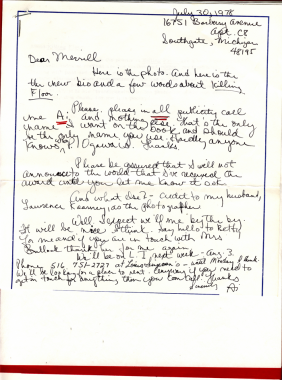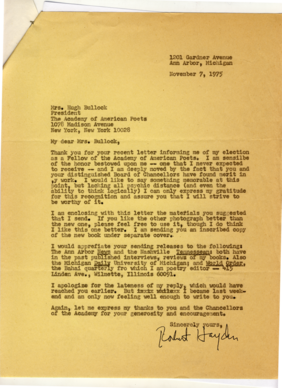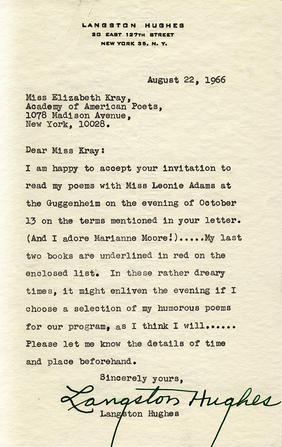To celebrate Black History Month in February—and the rich tradition of American poetry all year long—browse essays on literary milestones and movements, find important books on black history and poetics, look for lesson plans for Black History Month, read archival letters from classic Black poets, and search poems about the Black experience by both classic and contemporary poets.
mobileMenu
- Poems
- Poets
- Poem-a-Day
- National Poetry Month
- Materials for Teachers
- Literary Seminars
- American Poets Magazine
Main navigation
User account menu
Poems for Black History Month
Page submenu block
“Tending” by Elizabeth Alexander
In the pull-out bed with my brother …
“Still I Rise” by Maya Angelou
You may write me down in history ...
“The Tradition” by Jericho Brown
Aster. Nasturtium. Delphinium. We thought ...
“American Sonnet (10)” by Wanda Coleman
our mothers wrung hell and hardtack from row …
“Dirt” by Kwame Dawes
We who gave, owned nothing …
“The Weakness” by Toi Derricotte
That time my grandmother dragged me ...
“A Negro Love Song” by Paul Laurence Dunbar
Seen my lady home las’ night ...
“Ego Tripping (there may be a reason why)” by Nikki Giovanni
I was born in the congo ...
“Middle Passage” by Robert Hayden
Jesús, Estrella, Esperanza, Mercy …
“American Sonnet for My Past and Future Assassin [But there never was a black male hysteria]” by Terrance Hayes
But there never was a black male hysteria …
"Dreams" by Langston Hughes
Hold fast to dreams ...
“To America” by James Weldon Johnson
How would you have us, as we are?
“Notes on the Peanut” by June Jordan
Hi there. My name is George …
“Soul Train” by Allison Joseph
Oh how I wanted to be a dancer …
"Shared Plight" by Kamilah Aisha Moon
Bound to whims …
“The Bronze Legacy” by Effie Lee Newsome
‘Tis a noble gift to be brown, all brown …
“Washington Mews” by Rowan Ricardo Phillips
I won’t ever tell you how it ended …
“Here” by Ed Roberson
There is nothing concrete to grasp in ...
“there is no flash” by Metta Sáma
the eyes fine tuned perhaps ...
“This Is Not a Small Voice” by Sonia Sanchez
This is not a small voice...
“du bois in ghana” by Evie Shockley
at 93, you determined to pick up and go—
“& even the black guy’s profile reads ‘sorry, no black guys’” by Danez Smith
imagine a tulip, upon seeing a garden full of tulips …
“Incendiary Art” by Patricia Smith
The city’s streets are densely shelved with rows …
“Amos, 1963” by Margaret Walker
Amos is a Shepherd of suffering sheep ...
“Walk On, Walk Away” by Afaa Michael Weaver
Can we just stay here in the space where our loud laughing …
“Watch Us Elocute” by Marcus Wicker
So I’m at this party, right …
Featured Audio Poems
"Phenomenal Woman" by Maya Angelou
"We Real Cool" by Gwendolyn Brooks
"litany" by Mahogany L. Browne
“‘I’m Rooting for Everybody Black’” by Cortney Lamar Charleston
"homage to my hips" by Lucille Clifton
"A Place in the Country" by Toi Derricotte
“Given to Rust” by Vievee Francis
“Rocksteady” by Ishion Hutchinson
“Fly” by Gary Jackson
“What Would Gwendolyn Brooks Do” by Parneshia Jones
"These Poems" by June Jordan
from “The Last Bohemian of Avenue A” by Yusef Komunyakaa
“the valley of its making” by Nate Marshall
“America Gives Its Blackness Back to Me” by Shane McCrae
from Citizen, IV; from Citizen, VI; from Citizen, VI, part 2 by Claudia Rankine
“Nomenclatures of Invisibility” by Mahtem Shiferraw
"When Black People Are" by A. B. Spellman
"The Day Duke Raised: May 24th, 1974" by Quincy Troupe
Featured Video
Rachel Eliza Griffiths’s Poets on Poetry (P.O.P.)
This video series features contemporary American poets who read both an original poem and a poem by another poet and reflect on their choice. Watch videos featuring Cornelius Eady, Ross Gay, Terrance Hayes, John Murillo, Roger Reeves, Tracy K. Smith, Afaa Michael Weaver, and many more.
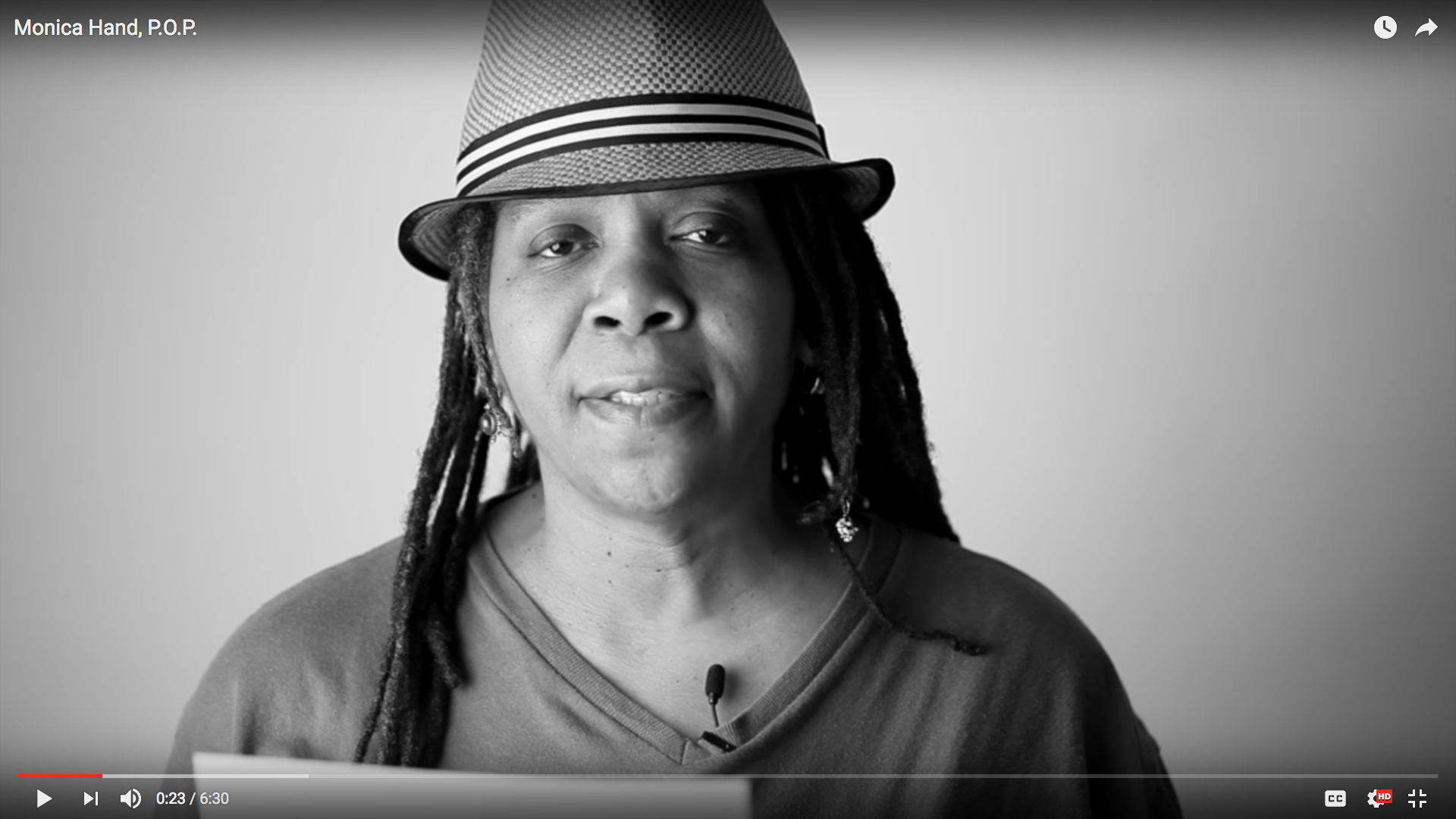
Verses for Hope
On November 13, 2016, just days after the 2016, the Academy of American Poets and Brain Pickings presented a pop-up reading, “Verses for Hope.” Watch Chancellor Elizabeth Alexander read her poem “Praise Song for the Day.”
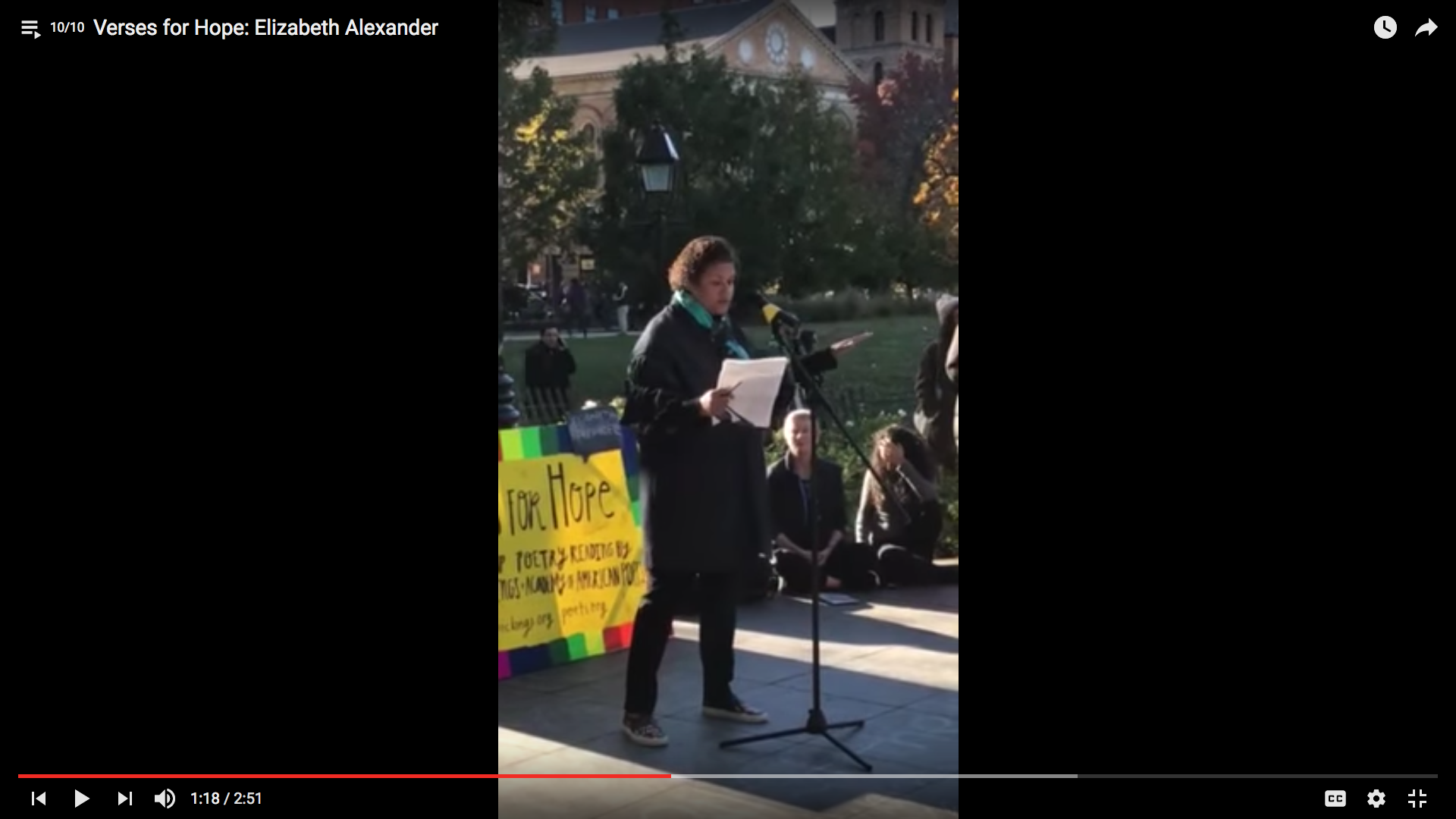
12 Poems to Read for Black History Month
We asked twelve contemporary black poets from across the country to choose one poem that should be read this month and to tell us a bit about why.
Yusef Komunyakaa and Ishion Hutchinson: What Is It to Be an American?
In this interview, Hutchinson and Komunyakaa discuss Robert Hayden, Robert Lowell, their own writing practices, and what it means to be an American.
On Black Male Poetics by Afaa M. Weaver
Despite their different choices, Hughes and Hayden had one thing in common. They loved living the life of the poet.
On Langston Hughes's The Weary Blues by Kevin Young
An essay about the music and craft of the poems in The Weary Blues, as well as the history behind it.
Open Letter: A Dialogue on Race and Poetry by Claudia Rankine
A transcript, with accompanying audio, of a presentation given by Rankine at the Associated Writing Programs Conference on February 4, 2011, with a response by Tony Hoagland.
The Metaphysics of American Journal by Michael S. Harper
An essay on Robert Hayden’s poems, which transcend sociological definition with their expansive connotations.
Tracy K. Smith and Elizabeth Alexander in Conversation
Known for the mysterious but utterly lucid quality of her poems, Smith writes a history that is sub-rosa yet fully within her vision.
Women of the Harlem Renaissance by Anthony Walton
In the time of the Harlem Renaissance, race and gender often hindered the building of artistic careers.
It Don’t Mean a Thing: The Blues Mask of Modernism by Kevin Young
Young examines the rise of modernism and draws parallels between its growth and the growth of blues music.
Assuming the Mask: Persona and Identity in Ai’s Poetry by Major Jackson
On the fortieth anniversary of the publication of Ai’s poetry collection, Killing Floor, Jackson re-examines the celebrated poet’s work.
Schools & Movements
Black Arts
Artists within the movement sought to create politically engaged work that explored the African American cultural and historical experience.
Dark Room Collective
It was the sustaining practice of writing in community just as much as the activist work of building a community-based reading series for writers of color.
Harlem Renaissance
No place embodied the new aesthetic more than Harlem, home to a thriving artistic scene including literary magazines like The Crisis, cafes, jazz clubs, and scores of reading venues.
Jazz Poetry
Writing about jazz poetry is, as they say, like dancing about architecture.
Negritude
The movement is marked by its rejection of European colonization and its role in the African diaspora.
Slam
Often highly politicized, drawing upon racial, economic, and gender injustices as well as current events for subject manner.
Citizen: An American Lyric
by Claudia Rankine
In this collection, Academy Chancellor Rankine notes racial transgressions small and large in the classroom, at the store, on the tennis court with Serena Williams, online, on the soccer field with Zinedine Zidane, and on the news—and examines the effects of these transgressions on the individual, the black community, and society as a whole.
The Bean Eaters
by Gwendolyn Brooks
Written during the early years of the Civil Rights Movement, during which the Brooks’s interest in social issues deepened and found expression in her work.
Sing the Sun Up: Creative Writing Ideas from African American Literature
edited by Teachers & Writers Collaborative
Written for teachers seeking to inspire and motivate their students to read and write, this text compiles a variety of exercises and lessons featuring the works of African American writers.
The Weary Blues
by Langston Hughes
The poems progress at a self-assured and lyrical pace—partly because Hughes expected them to be performed with musical accompaniment in the famous Harlem clubs of that era.
The Vintage Book of African American Poetry
A vast narration of struggle, love, race, and redemption through the work of fifty poets.
Poetic Forms
Blues Poem
A blues poem typically takes on themes such as struggle, despair, and sex.
The Bop
Not unlike the Shakespearean sonnet in trajectory, the Bop is a form of poetic argument consisting of three stanzas.
Educator Resources
Bring your Black History Month celebration to the classroom through poetry with a selection of lesson plans featuring poems by Gwendolyn Brooks, Langston Hughes, Marilyn Nelson, and Claudia Rankine, among others.
Celebrate Langston Hughes' birthday on February 1 with this collection of reading guides, essays, and discussion questions about his life and work.
Share a selection of poems for Black History Month that are appropriate for young readers.
In this letter from our archive, Ai sends her materials to the Academy of American Poets after hearing that she has been selected as the winner of the Lamont Prize.
Here Ai makes a special point to say that she wishes to be referred to solely as “Ai.” She writes: “Please, please in all publicity call me Ai and nothing else. That’s the only name I want on the book and should be the only name you use. Hardly anyone knows who P. Ogawa is. Thanks.”
Ai was the recipient of the Lamont Prize, the Academy of American Poets’ second book prize, for Killing Floor (Houghton Mifflin, 1979), selected by judges Maxine Kumin, Philip Levine, and Charles Wright.
In this letter from our archive, Robert Hayden responds to the news that he has been named the recipient of the Academy of American Poets Fellowship. In his letter he writes, “I am sensible of the honor bestowed upon me—one that I never expected to receive—and I am deeply moved by the fact that you and your distinguished Board of Chancellors have found merit in my work.” Modesty aside, by the time he wrote this letter in 1975, Hayden’s career had hit a notable stride begun with a number of honors he received in 1966.
In the summer of 1966, Elizabeth Kray, then executive director of the Academy of American Poets, invited Langston Hughes, the leading poetic figure of the Harlem Renaissance, to read in New York City at the Guggenheim Museum with fellow New York poet Léonie Adams. In the letter, he writes, “In these rather dreary times, it might enliven the evening if I choose a selection of my humorous poems for our program, as I think I will …” The “dreary times” Hughes mentions likely refers to the civil rights struggles of the 1960s and the escalating war in Vietnam.
